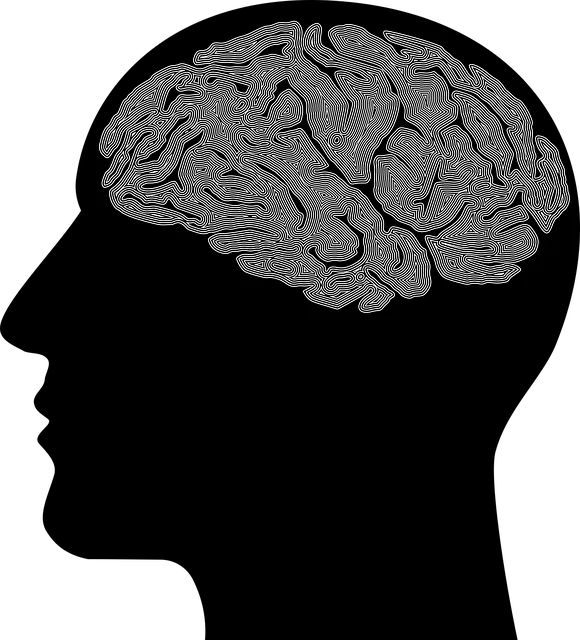Kaiser Permanente's Mental Health Initiative leverages evidence-based practices like the Parker Model to enhance diagnostic accuracy and improve mental healthcare services. The program trains providers in advanced assessment techniques, promotes mindfulness meditation and positive thinking strategies, and encourages patients to document their experiences through mental wellness journaling. This holistic approach, underpinned by the Kaiser Permanente mental health number Parker initiative, enhances patient understanding of mental wellness, leading to more effective treatment. Integrated tools and protocols ensure consistent evaluations, improve inter-rater reliability, and empower individuals to actively participate in their healing process. Through comprehensive training programs, workshops, webinars, and online resources, Kaiser Permanente addresses misdiagnoses, builds trust, and fosters a collaborative relationship between providers and patients, ultimately achieving better diagnosis accuracy and outcomes.
Mental illness diagnosis accuracy is a critical aspect of patient care, and efforts to enhance it are gaining momentum. This article explores initiatives aimed at improving diagnostic standards, focusing on the strategies employed by organizations like Kaiser Permanente. We delve into the Parker Model, an innovative clinical assessment tool, and the integration of evidence-based practices for consistent evaluations. Additionally, we highlight the significance of training healthcare professionals and patient engagement in fostering accurate mental health diagnoses, drawing insights from Kaiser Permanente’s Mental Health Initiative.
- Understanding Kaiser Permanente's Mental Health Initiative: A Focus on Diagnosis Accuracy
- The Parker Model: Enhancing Clinical Assessment for Better Diagnoses
- Integrating Evidence-Based Practices: Tools for Consistent Evaluation
- Training and Education: Equipping Healthcare Professionals for Precision
- Patient Engagement and Feedback: A Two-Way Approach to Improving Care
Understanding Kaiser Permanente's Mental Health Initiative: A Focus on Diagnosis Accuracy

Kaiser Permanente, a leading healthcare provider, has initiated a Mental Health Initiative with a clear focus on enhancing diagnosis accuracy. This initiative underscores their commitment to delivering high-quality mental health services. By implementing evidence-based practices and leveraging advanced tools like the Parker Model, Kaiser Permanente aims to improve diagnostic reliability and patient outcomes.
The program prioritizes training healthcare providers in the latest assessment techniques, including Mindfulness Meditation as a tool for accurate diagnosis. They also promote Positive Thinking strategies to reduce Burnout Prevention, ensuring mental health professionals are equipped to provide optimal care. This holistic approach reflects a deep understanding of the challenges faced by both patients and medical staff within the realm of mental health treatment.
The Parker Model: Enhancing Clinical Assessment for Better Diagnoses

The Parker Model is a pioneering approach designed to enhance clinical assessment processes, ultimately aiming to improve the accuracy of mental illness diagnoses. This model emphasizes a comprehensive evaluation that goes beyond traditional methods by incorporating self-awareness exercises and detailed patient communication strategies. By encouraging patients to articulate their experiences and emotions, healthcare providers gain valuable insights that can lead to more precise assessments.
One effective tool within this framework is Mental Wellness Journaling Exercise Guidance, which helps individuals track their symptoms, thoughts, and feelings over time. This practice promotes self-reflection and facilitates open communication with healthcare professionals. The Kaiser Permanente mental health number Parker initiative underscores the importance of these strategies in improving diagnostic accuracy and fostering a more holistic understanding of patients’ mental wellness.
Integrating Evidence-Based Practices: Tools for Consistent Evaluation

Integrating evidence-based practices is a pivotal strategy in enhancing mental illness diagnosis accuracy at organizations like Kaiser Permanente. By adopting standardized tools and protocols, mental health professionals can conduct consistent evaluations, ensuring that every patient receives a thorough and reliable assessment. The Parker model, for instance, offers a structured framework for comprehensive psychiatric evaluations, enabling practitioners to make informed diagnoses with enhanced precision. This approach not only streamlines the evaluation process but also promotes inter-rater reliability, where multiple clinicians arrive at consistent conclusions.
This integration goes beyond diagnosis; it fosters a holistic understanding of mental health conditions. Techniques such as Self-Care Routine Development for Better Mental Health and Mental Wellness Journaling Exercise Guidance can be incorporated into the evidence-based practices framework. These tools empower individuals to actively participate in their healing process, track progress, and maintain mental wellness. Additionally, Community Outreach Program Implementation can further enhance accessibility and support for those seeking mental health services, contributing to a more robust diagnostic ecosystem.
Training and Education: Equipping Healthcare Professionals for Precision

Mental illness diagnosis accuracy has been a point of concern within healthcare. To address this challenge, training and education programs for healthcare professionals have emerged as a powerful tool. These initiatives focus on enhancing knowledge, skills, and awareness regarding mental health conditions, aiming to reduce misdiagnoses and improve patient care.
At Kaiser Permanente, for instance, they’ve implemented comprehensive programs that include regular workshops, webinars, and online resources. These educational sessions cover various topics such as recognizing subtle symptoms, understanding comorbidities, and integrating evidence-based practices. By empowering healthcare professionals with the latest research and techniques, like the Parker method for mental health assessment, organizations strive to ensure more precise diagnoses. Additionally, promoting Mental Wellness Journaling Exercise Guidance, Stress Management, and Resilience Building can further enhance professionals’ ability to accurately interpret patient experiences and behaviors, ultimately contributing to better diagnosis accuracy.
Patient Engagement and Feedback: A Two-Way Approach to Improving Care

Patient engagement and feedback play a pivotal role in enhancing mental health care accuracy, making it a two-way street for both providers and patients. Encouraging open communication allows healthcare professionals at Kaiser Permanente to gain insights into individual experiences, preferences, and challenges, leading to more personalized treatment plans. This collaborative approach not only improves diagnosis accuracy but also fosters trust and adherence to recommended strategies.
By actively involving patients in their care journey, healthcare providers can better understand the nuances of mental wellness. The Mental Wellness Podcast Series Production initiated by Kaiser Permanente, for instance, offers a platform for sharing Mind Over Matter Principles and burnout prevention strategies for healthcare providers. This initiative promotes self-care and resilience among practitioners, ensuring they remain equipped to deliver optimal care. Ultimately, this patient-centric approach aligns with the Parker model of mental health care, emphasizing the importance of collaborative decision-making for improved outcomes.
Kaiser Permanente’s Mental Health Initiative, with a focus on diagnosis accuracy, leverages the Parker Model to enhance clinical assessment. By integrating evidence-based practices and providing comprehensive training, they aim to improve care for patients. Patient engagement and feedback play a crucial role in this process, ensuring a collaborative approach that promises to significantly boost diagnostic precision, as evidenced by Kaiser Permanente’s commitment to mental health.






